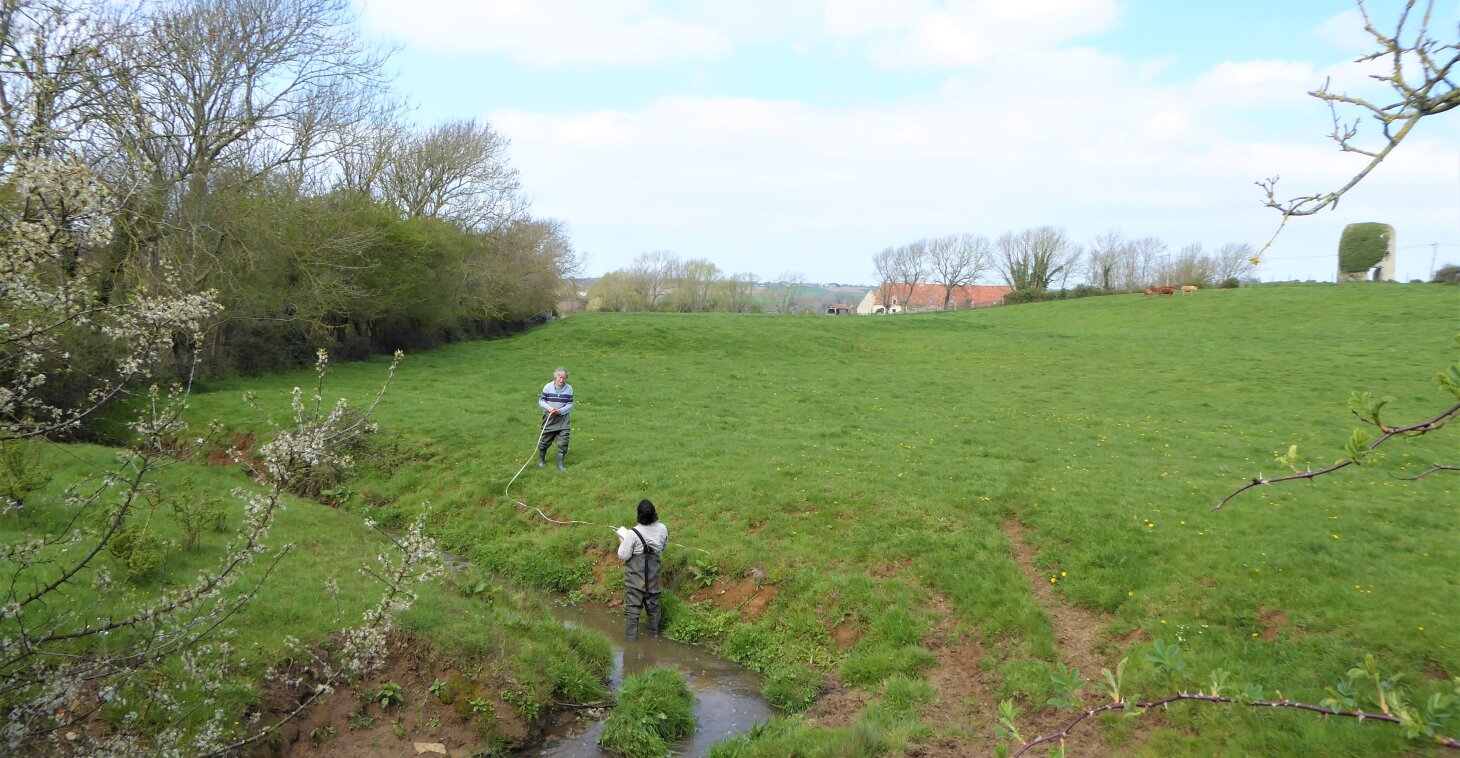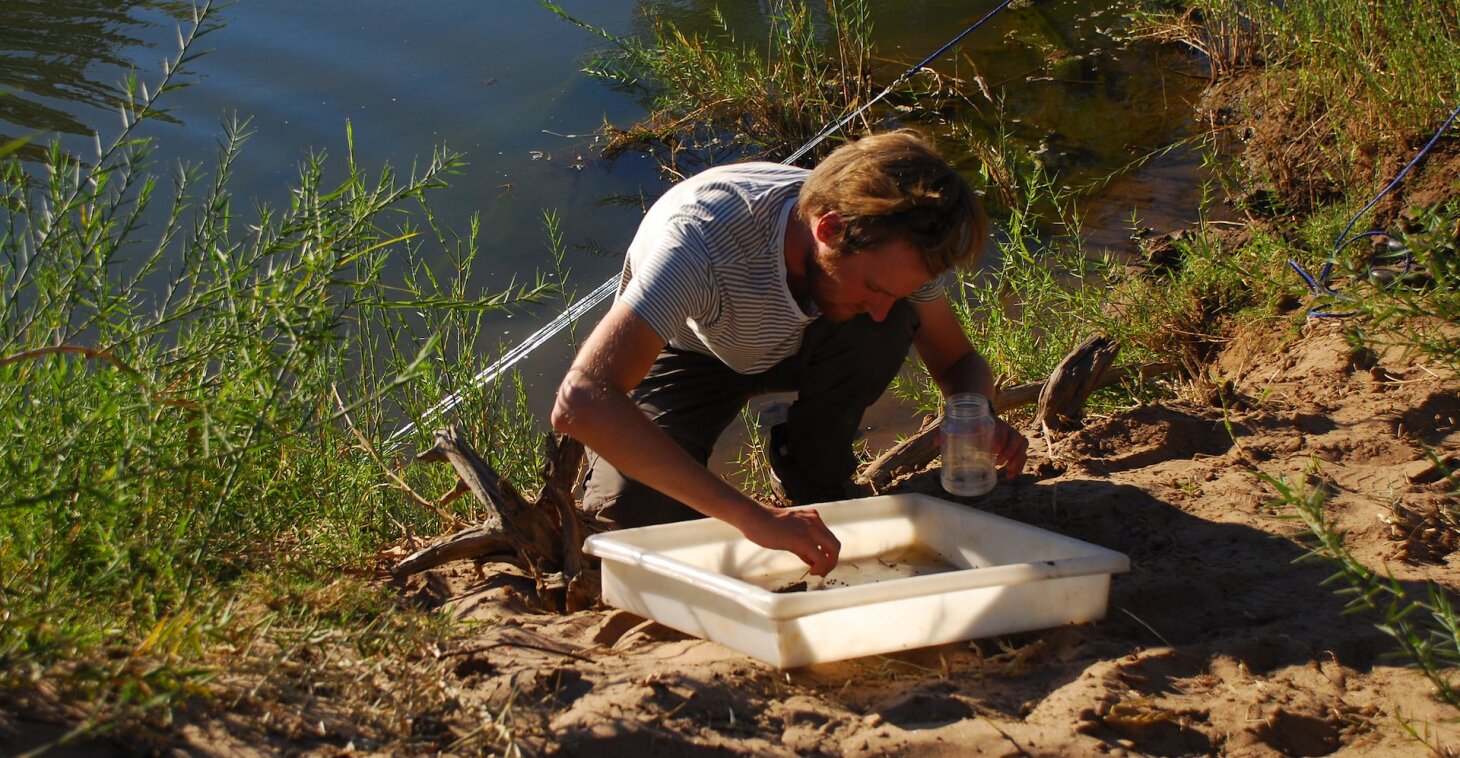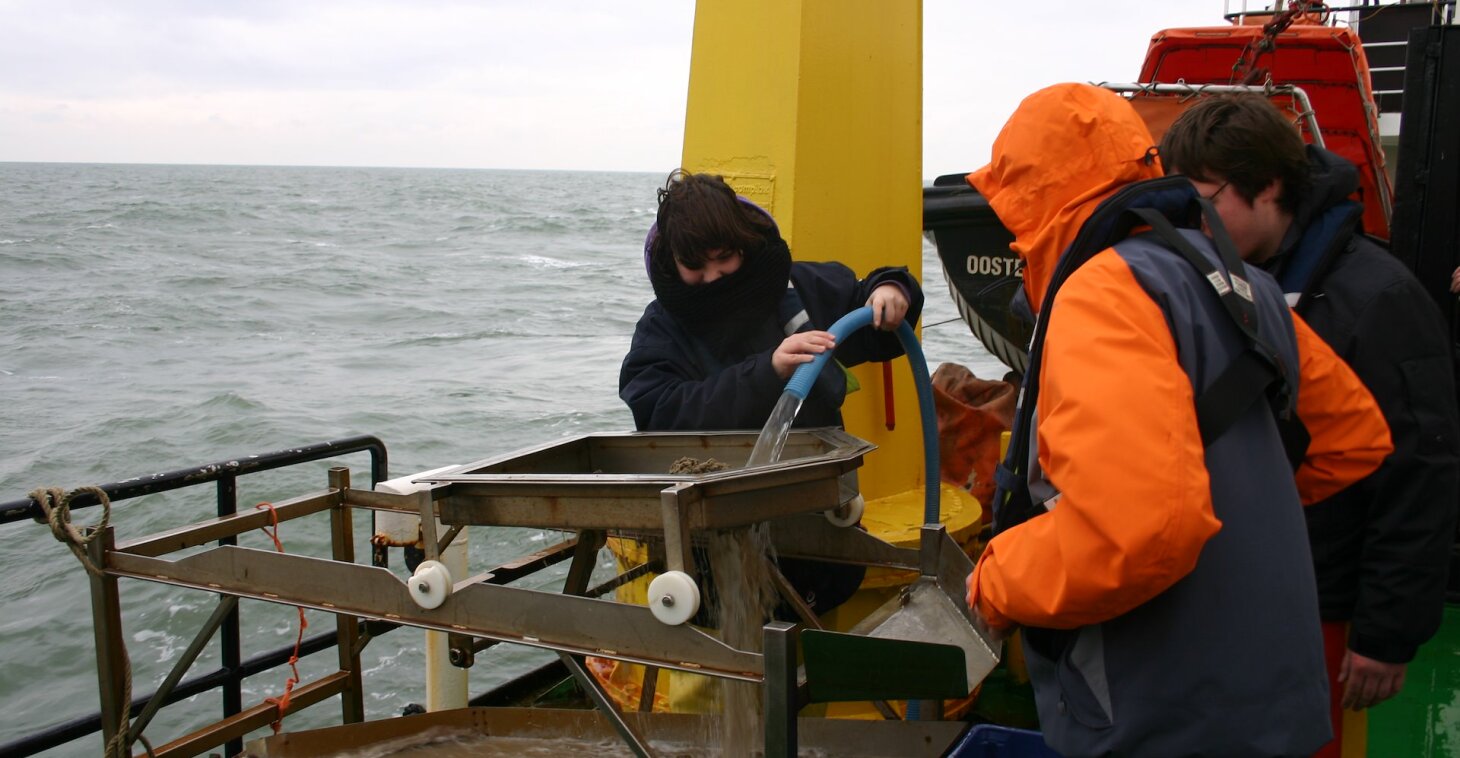In our group, we have extensive experience in fieldwork in aquatic environments, covering rivers, estuaries, and (tidal) wetlands including tidal marshes, mudflats and mangroves. Specialized field technicians are trained and well-equipped for collecting surface water samples and conducting discrete in situ measurements, such as oxygen saturation, pH, light attenuation, turbidity, and more. We also possess multiparameter probes for the continuous monitoring of these parameters. We also have at our disposal various coring equipment for collecting surficial and deeper sediment samples. For groundwater monitoring, we can install piezometers and have various tools for sampling pore water. We also collaborate with IFlux, a spinoff company that makes groundwater dynamics visible. To monitor sedimentation and erosion, we utilize well-established methods like marker horizons and surface elevation tables; we also have several topographic instruments (e.g., RTK-GPS, Total Station, drone for photogrammetry) at our disposal, as well as recently developed, fully automated sensors thanks to our collaboration with the Royal Netherlands Institute for Sea Research (NIOZ). To monitor the hydrodynamics such as flow velocity, tides and waves, we can rely on high-resolution pressure sensors and velocimeters (ADV, EM Flowmeter).
Skilled biologists can perform vegetation mapping, fish, bird, and benthos monitoring, with lab facilities available to sort, sieve, determine, and store samples. We have a variety of traps and fyke nets at our disposal and hold a license for electric fish monitoring.
If you are in need of technical field assistance or want to use some of our equipment, please contact Tom Maris.


